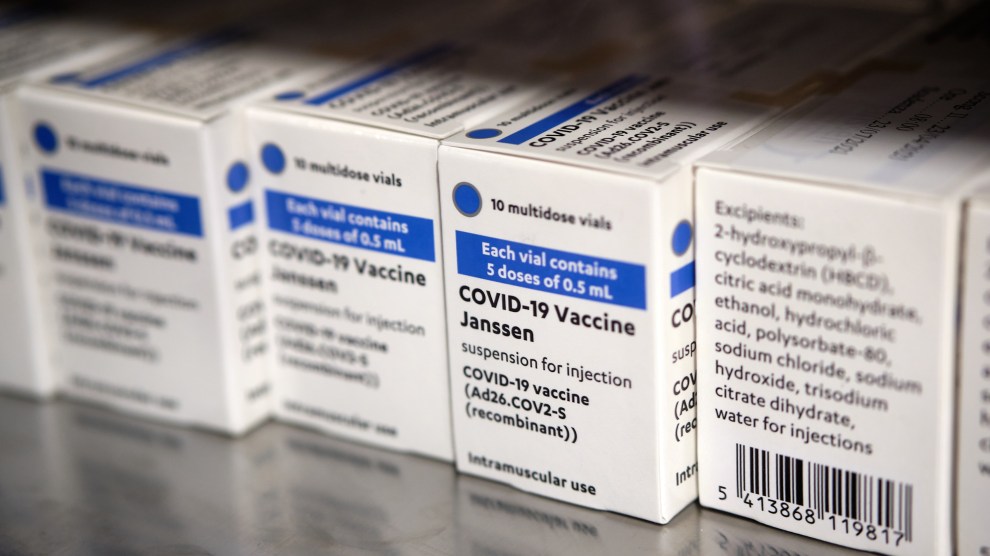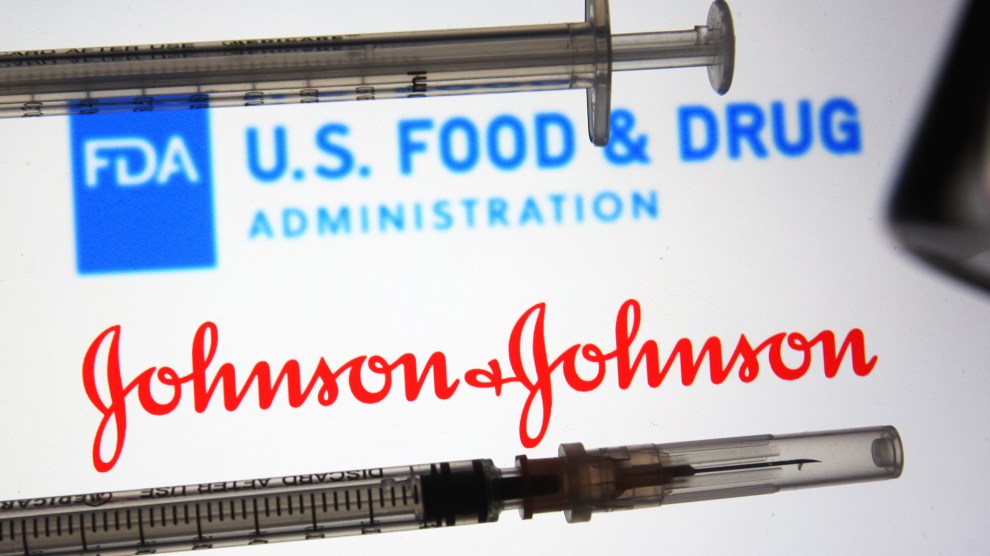
Mauro Scrobogna/LaPresse/Zuma
A Centers for Disease Control and Prevention advisory panel recommended Friday that distribution of the Johnson & Johnson coronavirus vaccine resume.
The CDC and the Food and Drug Administration recommended halting J&J inoculations on April 13 following reports of rare, serious blood clots in people who had received the vaccine. Out of nearly 8 million vaccines administered, there have been 15 confirmed cases of blood clots, all in women. Three have died, and seven remain hospitalized.
As my colleague Kiera Butler reported last week, although the J&J pause came as a blow to vaccination efforts, it was ultimately the right decision:
My reporting on vaccine hesitancy and public health messaging has taught me that trying to hide bad news from the public not only doesn’t work but is seriously counterproductive. As infectious disease expert Monica Gandhi told me last week, we learned during the HIV/AIDS epidemic that people thrive when they have access to nuanced and accurate information. We learned from other vaccine rollouts that downplaying side effects has a way of coming to back to bite you. For example, in 2002, when the George W. Bush administration rolled out a smallpox vaccine, it sought to downplay rare but serious side effects, which included potentially fatal inflammation of the heart. Naturally, the news got out anyway. The result was that the administration ended up vaccinating just 10 percent of its goal.
The CDC’s Advisory Committee on Immunization Practices determined that vaccination should resume and that the vaccine should carry a warning about the risk of blood clots. CDC director Rochelle Walensky will need to give final approval before vaccinations can begin again.
















